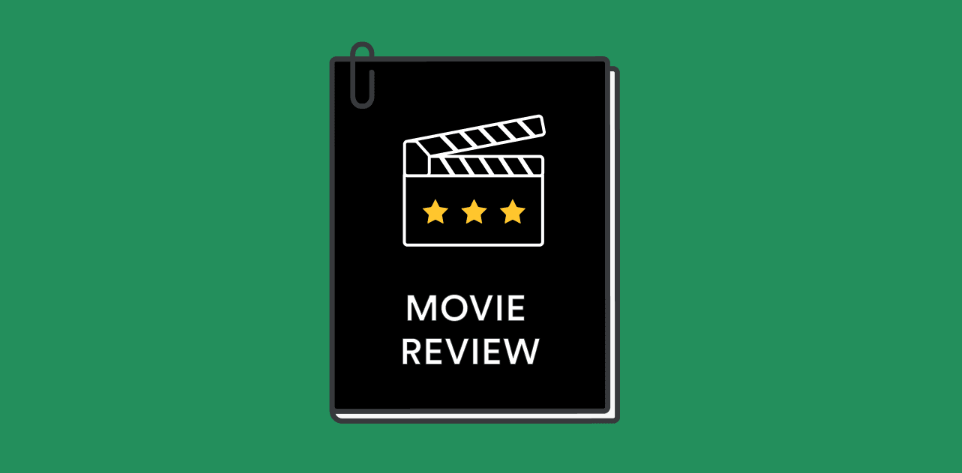The cinematic landscape is vast and varied, teeming with stories waiting to be discovered and dissected. But simply recounting the plot of a film isn’t enough to create a compelling movie review. A truly engaging movie review goes beyond summarizing events; it analyzes, interprets, and ultimately, persuades the reader to share your perspective – whether it’s rapturous praise or scathing critique.
This article will explore the essential elements of writing a successful movie review, transforming your thoughts from simple observations into a compelling piece of critical writing.
Understanding Your Audience and Purpose:
Before diving into the specifics of crafting your movie review, consider your target audience and the purpose of your review. Are you writing for a casual audience on a personal blog, or aiming for a more sophisticated readership at a film journal? A review for cinephiles will delve into deeper thematic analyses and stylistic choices, while a review for a general audience will prioritize clarity and accessibility. Understanding your audience will dictate the tone, language, and depth of analysis you employ. Similarly, your purpose might be to simply inform, to persuade, or to provoke thought. Keeping your purpose in mind will help you focus your writing and ensure your movie review stays on track.
Beyond the Summary: Analyzing the Film’s Strengths and Weaknesses:
The most common mistake in movie review writing is over-reliance on plot summary. While a brief synopsis is necessary to provide context, it shouldn’t dominate your review. Instead, focus on analyzing the film’s strengths and weaknesses. This involves evaluating various aspects:
- The Narrative: How effective is the storytelling? Does the plot unfold logically and engagingly? Are there any plot holes or inconsistencies? Consider the pacing, structure, and overall narrative arc.
- The Characters: Are the characters believable and well-developed? Do their motivations make sense? Do they undergo meaningful change or growth? Analyze their relationships and how they contribute to the overall narrative.
- The Acting: Assess the performances of the actors. Are they convincing in their roles? Do they bring depth and nuance to their characters? Consider the chemistry between actors and their overall contribution to the film’s success.
- The Direction: How does the director’s vision shape the film? Consider the use of cinematography, editing, sound design, and mise-en-scène. How do these elements contribute to the overall atmosphere and impact of the film?
- The Themes and Messages: What are the central themes explored in the movie? How effectively are these themes communicated? What message, if any, is the film trying to convey? Analyze the film’s social, political, or philosophical implications.
Writing with Style and Clarity:
A well-written movie review is not just informative, it’s also engaging. This requires clear, concise writing and a unique stylistic voice.
- Use Vivid Language: Avoid clichés and generic descriptions. Use precise language and sensory details to paint a picture for your reader. Instead of writing “the movie was good,” describe specific aspects that made it enjoyable – the breathtaking cinematography, the nuanced performances, the gripping suspense.
- Develop a Strong Thesis Statement: Your movie review should have a central argument or thesis statement. This statement summarizes your overall opinion of the film and guides your analysis. For example, “While technically impressive, ‘The Glittering Abyss’ ultimately fails to deliver on its ambitious narrative promises.”
- Structure Your Review: Organize your thoughts logically. Use clear topic sentences and transitions to connect different sections of your review. A common structure is to begin with a brief synopsis, followed by an analysis of the various elements discussed above, and concluding with your overall assessment.
- Support Your Claims with Evidence: Don’t just state your opinions; back them up with specific examples from the film. Refer to particular scenes, dialogue, character interactions, or stylistic choices to support your claims.
The Art of Persuasion in Your Movie Review:
A truly successful movie review persuades the reader to agree with your perspective. To achieve this, you must not only present your analysis but also justify your opinions. This involves:
- Objectivity and Subjectivity: While your movie review reflects your personal opinions, strive for a balance between subjectivity and objectivity. Support your subjective judgments with objective evidence from the film itself.
- Addressing Counterarguments: Acknowledge and address potential counterarguments to your perspective. This demonstrates critical thinking and strengthens your argument.
- Concise and Engaging Conclusion: Summarize your main points and restate your overall assessment of the film. Leave the reader with a lasting impression.
Beyond the Basics: Enhancing Your Movie Review
To truly stand out, consider these additional elements:
- Comparative Analysis: Compare and contrast the film with other similar works. This allows you to place the film within a broader cinematic context and enhance your analysis.
- Contextual Background: Consider the film’s production history, director’s filmography, or social and cultural context. This can add depth and richness to your review.
- Creative Writing Techniques: Incorporate literary devices such as metaphors, similes, and imagery to make your writing more vibrant and engaging.
Writing a truly engaging movie review requires more than just summarizing the plot. It demands careful analysis, insightful interpretation, and persuasive writing. By following these guidelines, you can transform your thoughts and opinions into a compelling and thought-provoking piece of critical writing, leaving a lasting impact on your readers. Even a negative movie review can be engaging and insightful if it’s well-written and offers a thoughtful analysis. A well-crafted movie review is a work of art in itself, reflecting not only the film under review but also the critical acumen of its author. So sharpen your critical eye, hone your writing skills, and dive into the world of movie review writing. The cinematic landscape awaits your insightful perspective.
